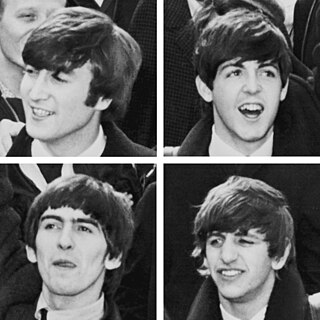 Practice participle clauses in your ESL class with this song, She’s leaving home by The Beatles.
Practice participle clauses in your ESL class with this song, She’s leaving home by The Beatles.
This song contains 10 different examples of the present participle (gerund) used as a participle clause (closing…, leaving…, clutching…, turning…, stepping…, leaving…, living…, standing…, waiting… & meeting…). Notice there are no examples of the past participle as a participle clause in this song.
There is a suggestion on how to use this song in your ESL classes below, but for more ideas, click here.
Lyrics
Wednesday morning at five o’clock as the day begins
Silently closing her bedroom door
Leaving the note that she hoped would say more
She goes downstairs to the kitchen
Clutching her handkerchief
Quietly turning the backdoor key
Stepping outside she is free
She (we gave her most of our lives)
Is leaving (sacrificed most of our lives)
Home (we gave her everything money could buy)
She’s leaving home after living alone for so many years
Father snores as his wife gets into her dressing gown
Picks up the letter that’s lying there
Standing alone at the top of the stairs
She breaks down and cries to her husband
Daddy, our baby’s gone
Why would she treat us so thoughtlessly
How could she do this to me
She (we never thought of ourselves)
Is leaving (never a thought for ourselves)
Home (we struggled hard all our lives to get by)
She’s leaving home after living alone for so many years
Friday morning at nine o’clock she is far away
Waiting to keep the appointment she made
Meeting a man from the motor trade
She (what did we do that was wrong)
Is having (we didn’t know it was wrong)
Fun (fun is the one thing that money can’t buy)
Something inside that was always denied for so many years
She’s leaving home
Bye, bye
Suggested activity: fill the gaps
Download this exercise (PDF)
Put the verbs into the gaps to make gerund participle clauses: close, clutch, leave, meet, stand, step, turn & wait. Then listen to check.
Wednesday morning at five o’clock as the day begins
Silently 1____________ her bedroom door
2____________ the note that she hoped would say more
She goes downstairs to the kitchen
3____________ her handkerchief
Quietly 4____________ the backdoor key
5____________ outside she is free
She (we gave her most of our lives)
Is leaving (sacrificed most of our lives)
Home (we gave her everything money could buy)
She’s leaving home after living alone for so many years
Father snores as his wife gets into her dressing gown
Picks up the letter that’s lying there
6____________ alone at the top of the stairs
She breaks down and cries to her husband
Daddy, our baby’s gone
Why would she treat us so thoughtlessly
How could she do this to me
She (we never thought of ourselves)
Is leaving (never a thought for ourselves)
Home (we struggled hard all our lives to get by)
She’s leaving home after living alone for so many years
Friday morning at nine o’clock she is far away
7____________ to keep the appointment she made
8____________ a man from the motor trade
She (what did we do that was wrong)
Is having (we didn’t know it was wrong)
Fun (fun is the one thing that money can’t buy)
Something inside that was always denied for so many years
She’s leaving home
Bye bye

